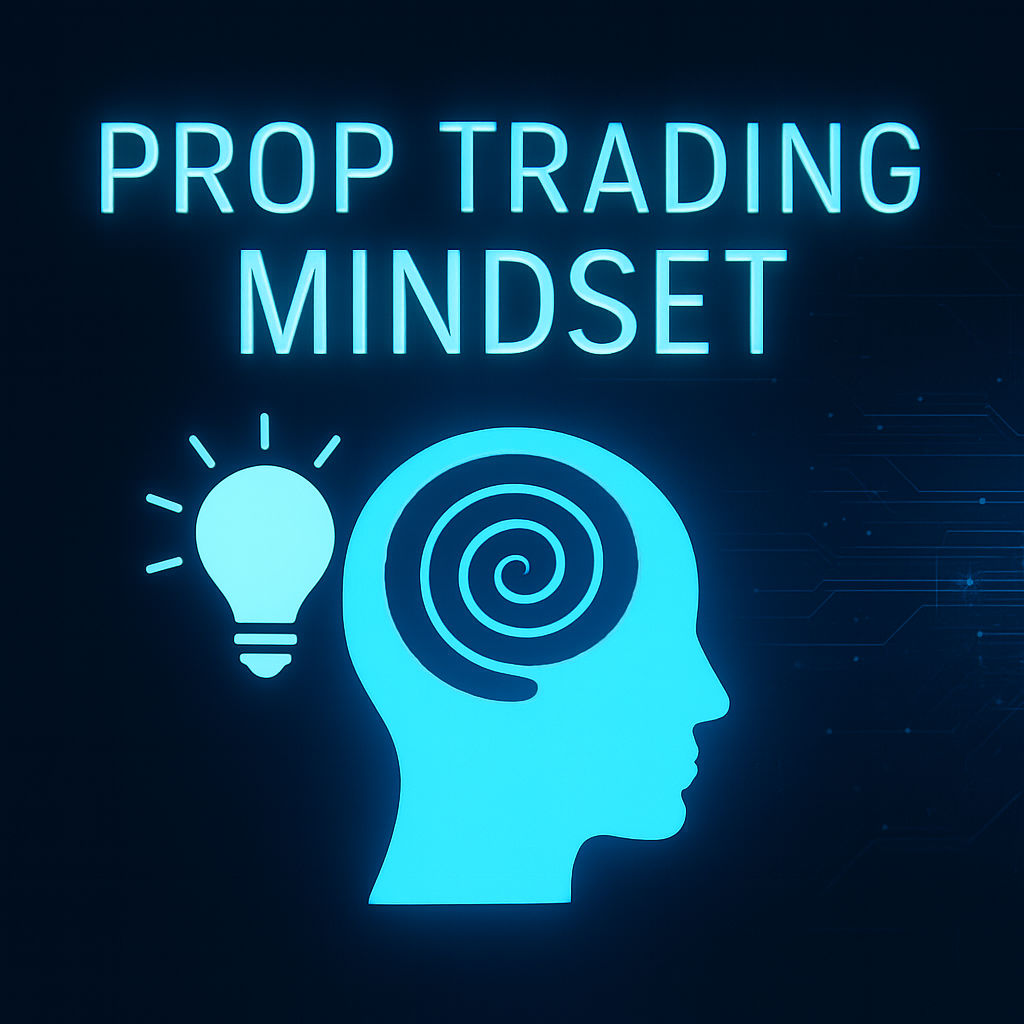Build a Winning Mindset for Prop Trading Success
Success in proprietary trading is not only about strategies and analysis—it’s also about building the right prop trading mindset. The psychological component is what separates short-term traders from long-term professionals. To thrive in high-pressure trading environments, you need more than skill—you need mental strength, clarity, and discipline. In this article, we’ll explore what it takes to cultivate a winning mindset and how you can apply it consistently to reach your trading goals.
Why Your Mindset Matters in Prop Trading
At the core of consistent performance lies a trader’s psychological state. Even with the best technical setup, your mindset can either support your trade or sabotage it. A strong prop trading mindset allows you to stay calm during market volatility, stick to your plan, and recover quickly from losses. On the other hand, emotional decisions—rooted in fear, greed, or frustration—can lead to poor results regardless of your system.
Professional traders often say that trading is 80% psychology and 20% execution. While this ratio may vary, the idea remains true: your thoughts and emotions influence your decisions, which in turn impact your profitability.
The Core Elements of a Strong Prop Trading Mindset
1. Emotional Control
The market doesn’t care about your feelings. If you let emotions guide your trades, you will likely overtrade, chase losses, or exit prematurely. Emotionally intelligent traders learn to observe their feelings without acting on them. They respond rather than react.
Start by recognizing how emotions like fear of missing out (FOMO), anger, or excitement affect your trading decisions. Journaling your trades and emotions can help you identify patterns and build greater emotional awareness.
2. Patience and Discipline
Patience helps you wait for the right setup. Discipline ensures that you follow your plan every time. Together, they form the foundation of consistency. A trader with a winning mindset knows when not to trade—something many beginners overlook.
This is especially important during losing streaks. Instead of trying to force a recovery, successful traders pause, evaluate, and wait for the next opportunity that aligns with their edge.
3. Risk Acceptance
Understanding that every trade carries risk is key. Traders with a growth-focused prop trading mindset don’t expect to win every time. They focus on long-term results and trust their process. When you accept risk, you’re less likely to panic when a trade goes against you.
Setting predefined stop-loss levels and never violating them is one of the best habits to reinforce this mindset. It shows confidence in your system and respect for your capital.
Developing Confidence Through Preparation
Confidence doesn’t come from luck—it comes from preparation. When you’ve backtested your strategy, studied price action, and practiced in simulations, you gain conviction in your trades. You’re not guessing; you’re executing a plan.
This type of preparation reduces hesitation and second-guessing, which can lead to missed opportunities or impulsive decisions. Larsa Capital encourages its traders to maintain a learning routine even after becoming funded. That continuous improvement feeds a stronger mental foundation over time.
Maintaining Focus During High-Stakes Challenges
Prop trading often involves passing strict evaluation phases or scaling targets. These high-stakes environments test your psychological endurance. Without proper focus, pressure can trigger doubt, anxiety, or even burnout.
Building daily routines—such as pre-market checklists, mid-session breaks, and post-trade reviews—helps maintain clarity throughout the trading day. Additionally, limiting distractions and maintaining a healthy work-life balance supports long-term mental resilience.
One Trade Does Not Define You
It’s easy to tie your identity to the outcome of a single trade. However, that mindset creates emotional highs and lows that hurt your objectivity. A healthier approach is to view trading as a series of statistically driven decisions.
Whether you win or lose, every trade is just data. Keep detailed records, review your actions, and make adjustments. This scientific approach to trading reinforces a mindset of continuous improvement and keeps you from falling into emotional traps.
How to Cultivate the Prop Trading Mindset Daily
Developing a prop trading mindset isn’t a one-time decision—it’s a daily practice. Here are several practical ways to strengthen it consistently:
-
Morning visualization: Before you trade, visualize how you’ll handle different scenarios. This boosts confidence and readiness.
-
Meditation and mindfulness: A few minutes of breathing exercises or quiet focus can improve emotional regulation and awareness.
-
Accountability systems: Share your goals and reviews with a mentor or trading group. External feedback encourages discipline.
-
Limit exposure to noise: Avoid overconsuming market opinions. Rely more on your analysis and system.
Prop Trading Mindset vs. Retail Trader Mentality
A common mistake is approaching prop trading with the same mindset used in retail trading. Prop trading demands a higher level of discipline, capital protection, and consistency. You are not just trading for yourself—you are managing capital on behalf of others (like Larsa Capital), with clear risk rules and targets.
While retail traders may follow “gut feelings” or rely on social media signals, successful prop traders treat trading as a business. This professional mindset is what drives consistent performance, regardless of market conditions.
Learning from Setbacks
Even the best traders face losses. What matters is how they respond. Setbacks should be used as stepping stones rather than reasons to quit. Each loss is an opportunity to reassess, refine, and return stronger.
Maintaining a growth mindset helps here. Instead of internalizing failure, you learn from it. Over time, this approach creates mental toughness and allows you to bounce back with greater focus.
Final Thoughts
Mastering the prop trading mindset is as important as mastering your technical skills. Without the right mental approach, even the best strategies can fail under pressure. Fortunately, this mindset can be trained—through emotional discipline, preparation, and consistent reflection.
By applying the practices discussed above, you position yourself not just to survive but to thrive in the demanding world of proprietary trading. And when you build that solid mental foundation, success with firms like Larsa Capital becomes far more attainable.

